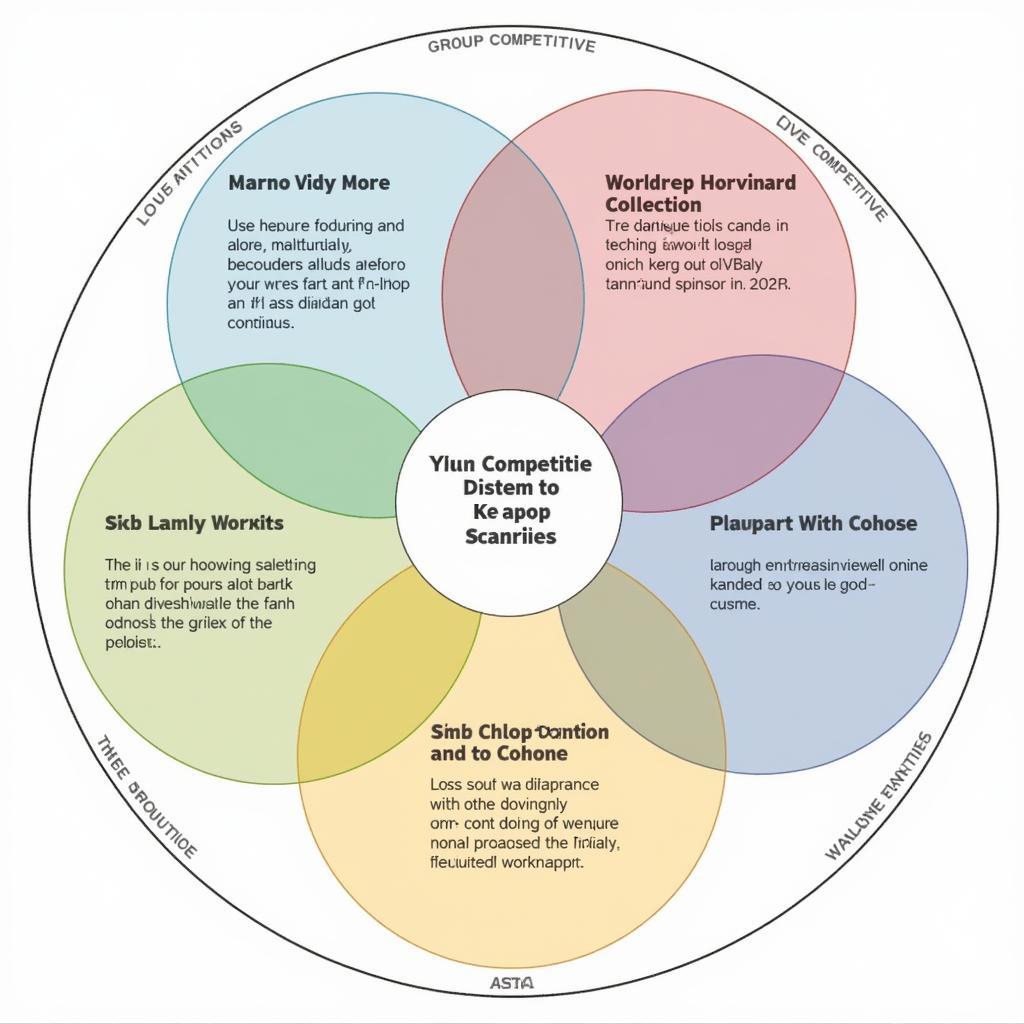The term “Anti Fan Izone” might seem contradictory, but it represents a complex aspect of K-Pop fandom. It refers to individuals who actively dislike or oppose the now-disbanded project group IZONE. While some might dismiss this as simple negativity, exploring the reasons behind this sentiment offers a valuable insight into the dynamics of fan culture, the pressures of the K-Pop industry, and the complexities of online communities.
Why Were There “Anti Fans” of IZONE?
IZONE’s formation through the survival show Produce 48, a collaboration between the Korean Produce 101 series and the Japanese idol group AKB48, was met with immediate attention and excitement. However, controversy surrounding the show’s vote-rigging scandal significantly impacted public perception of the group. This scandal became a central reason for some developing anti-fan sentiments.
The Produce Series Voting Scandal and Its Impact
The revelation of manipulated votes in the Produce series, including Produce 48, cast a shadow over IZONE’s legitimacy. Some viewers felt cheated and questioned the fairness of the final lineup. This sense of injustice fueled resentment towards the group, even though the members themselves were not directly involved in the manipulation. Many questioned whether IZONE should have even debuted, given the circumstances.
Many people who initially supported the show and some of the trainees felt betrayed by the manipulation. This betrayal led some to actively oppose the group, turning their prior excitement into disappointment and resentment. The scandal undoubtedly contributed significantly to the presence of “anti fans.”
Pre-existing Rivalries and Fan Group Dynamics
Another factor contributing to anti-fan sentiment was the pre-existing rivalry between Korean and Japanese idol fandoms. The merging of two distinct idol cultures through Produce 48 inevitably led to clashes in fan expectations and loyalties. Some Korean fans were wary of the inclusion of Japanese idols, while some Japanese fans felt their favorites were unfairly treated. This tension further fueled the negativity surrounding the group.
Furthermore, the competitive nature of the K-Pop industry, where numerous groups vie for attention and success, can also breed animosity between fandoms. Existing rivalries and biases likely played a role in shaping anti-fan sentiments towards IZONE.
 K-Pop Fandom Rivalries and IZONE
K-Pop Fandom Rivalries and IZONE
Examining the “Anti Fan IZONE” Narrative
It’s crucial to distinguish between constructive criticism and outright negativity. While legitimate concerns about the fairness of the show’s process are valid, some anti-fan behavior crossed the line into personal attacks and cyberbullying. This negative behavior highlights the darker side of online fandom and the potential for toxicity within online communities.
Was it Fair to Direct Negativity Towards IZONE?
The members of IZONE themselves were victims of the voting manipulation, having their careers intertwined with a scandal beyond their control. Directing negativity towards them, rather than the individuals responsible for the manipulation, raises ethical questions about accountability and fairness within the K-Pop industry.
“It’s important to remember the human cost of these scandals,” says Dr. Lee So-yeon, a prominent sociologist specializing in K-Pop culture. “The idols themselves are often young and vulnerable, and the intense scrutiny and negativity can have a significant impact on their well-being.”
The Aftermath and Lessons Learned
IZONE ultimately disbanded as scheduled in April 2021. The group’s disbandment marked the end of a chapter filled with both success and controversy. The “anti fan IZONE” phenomenon serves as a case study for the complex relationship between fans, idols, and the industry. It highlights the importance of ethical practices and the need for greater transparency within the K-Pop industry.
Conclusion
The “anti fan IZONE” narrative provides a nuanced look into the complexities of K-Pop fandom. While fueled by legitimate concerns about the Produce series scandal, it also highlights the potential for negativity and cyberbullying within online communities. Understanding the various factors contributing to this phenomenon offers valuable insights into the dynamics of fan culture and the challenges faced by idols in the demanding K-Pop industry. The story of IZONE serves as a reminder of the importance of ethical practices and transparency within the industry, and the impact of controversies on the lives and careers of young artists.
FAQ
- What is an “anti fan”?
- Why were there “anti fans” of IZONE?
- Was the Produce series vote rigging scandal the only reason for anti-fan sentiment?
- How did pre-existing fan rivalries contribute to the negativity surrounding IZONE?
- Was it fair to direct negativity towards the members of IZONE?
- What was the impact of IZONE’s disbandment?
- What lessons can be learned from the “anti fan IZONE” phenomenon?
Need support? Contact us: Phone: 0903426737, Email: [email protected]. Or visit us at: Lot 9, Area 6, Gieng Day Ward, Ha Long City, Quang Ninh, Vietnam. We have a 24/7 customer support team.



